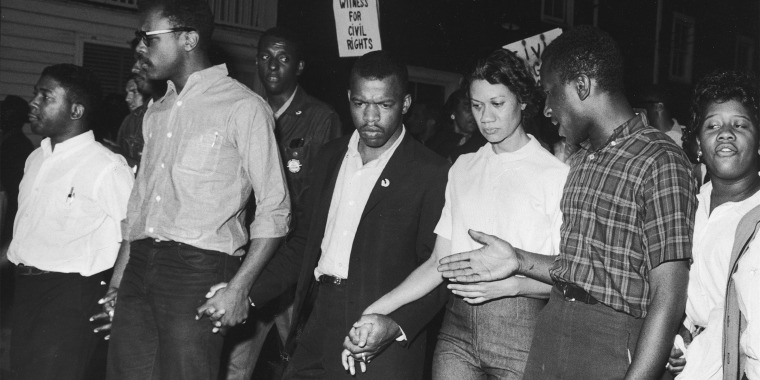Jordan Kazlow joined John Lewis' 2008 congressional campaign at 17, before she was old enough to cast a ballot.
That gave her something in common with her boss, who began his work toward becoming a civil rights icon around the same age.
"It was really meaningful to talk to him about him fighting for the vote before he was even old enough to vote," said Kazlow, 29, a lawyer in Dallas. "But that kind of commitment was inspiring. And the whole experience showed how important it was to him to get young people involved. His entire staff was under 25, and most between 16 and 20 years old."
For all the achievements of his 67 years of service, Lewis' commitment to inspiring the next generation of leaders and activists may be his most significant and lasting contribution.
As an activist fighting for racial equality, Lewis, at 23, was the youngest speaker at the 1963 March on Washington for Jobs and Freedom. Two years later, he put his body on the line for voting rights on "Bloody Sunday" on the Edmund Pettus Bridge in Selma, Alabama, thinking he might be killed at 25.
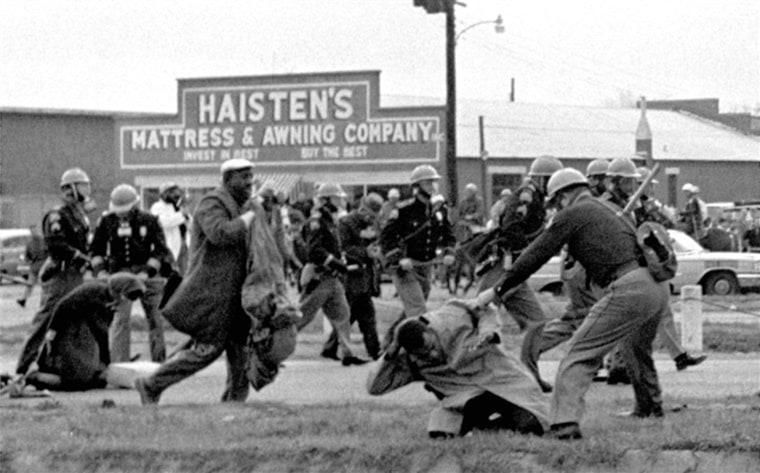
Even before his work on the national stage, Lewis was a young preacher in his teens, and he led other students in anti-segregation work. But as he grew into an elder statesman of the civil rights movement, Lewis actively looked to young people, like Kazlow and others who worked in his office, to continue his work.
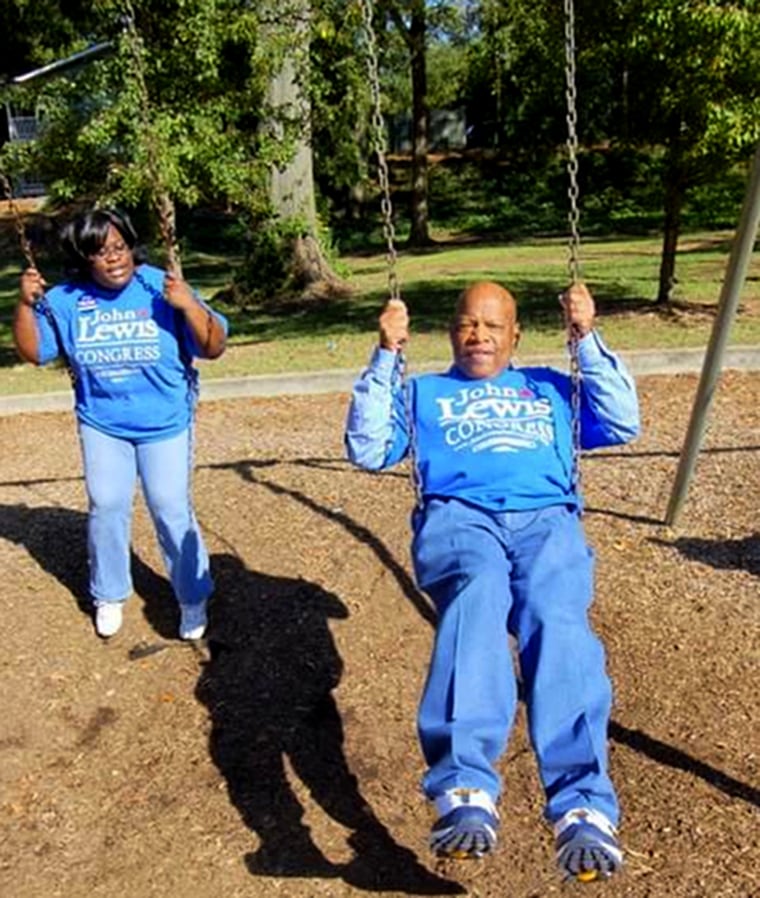
"We are the legacy of Congressman Lewis," said Rachelle O'Neil, who joined Lewis' staff as a constituent services representative when she was 32 and worked with him for 18 years. "He was committed to young people. The beautiful thing is that he started as a teenager. He believed in the young stepping up, taking action, making noise, fighting for what's right … that they have a moral responsibility to take stock in what their future is like. There are hundreds of us around the country who have been impacted by him."
As the nation mourns Lewis' death from pancreatic cancer this month at age 80, with services throughout his home state of Alabama, as well as in Georgia, which he served in Congress since 1987, and in Washington, D.C., his countless protégés take it all in with admiration and gratitude.
"With Congressman Lewis, young people of all ages could come and work at the feet of a civil rights icon," O'Neil said. "At [Lewis’] 65th birthday party, Harry Belafonte said they did not do enough to pass the baton to younger people to carry on the work. Congressman Lewis heard that and increased his efforts. You'd see him in May speaking at colleges and talking to students at schools, trying to bridge the gap from the civil rights movement to today's generation. He loved young people."
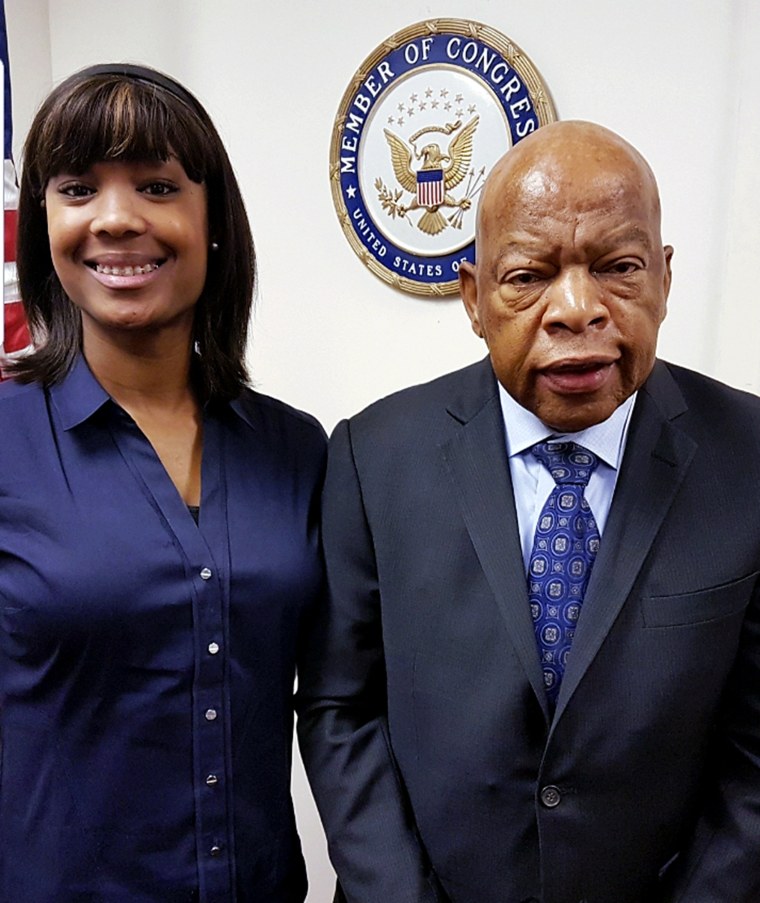
Jamesia James, 37, is running in a special election for a U.S. Senate seat in Georgia. She said her campaign was directly influenced by her two years working on Lewis' staff.
"I was inspired by his dedication to people," James said. "I wasn't aware politicians could be so committed. I looked around at the photos on various walls in his office and saw over the years, all the work he had done.
"It made me feel I wasn't doing enough. He always talked about us young people picking up the torch, that we needed to be more involved, that it was on our shoulders. He was adamant about young people being committed. But it wasn't like he was a politician. It was like being around your grandfather. He spoke as if I had a job to do."
More than 20 years ago, Earle Burke, a lawyer in Atlanta, met Lewis at an event. They quickly formed a friendship. "Every opportunity I spent with the congressman I got a history lesson about laws I am fighting to enforce as a lawyer," Burke said. "He was truly a warrior for justice. He's been very helpful in guiding me and helping me to understand the workings of Congress.
"And if he could have hired every young person interested in politics and have them spend time with him in Congress, he would have."
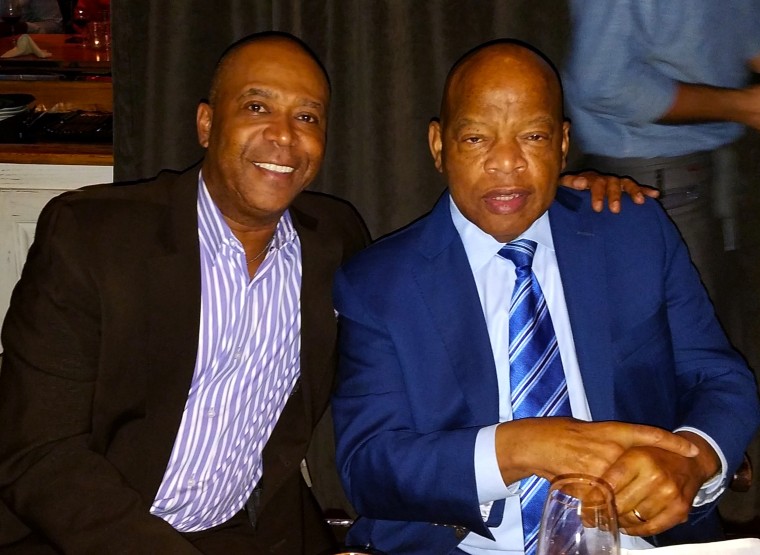
Lewis often spoke of the importance of young people's role in fighting for justice. He once said: "I want to see young people in America feel the spirit of the 1960s and find a way to get in the way. To find a way to get into trouble. Good trouble. Necessary trouble."
His commitment to youth extended to the John Lewis Fellowship, which supports young grassroots activists in dismantling inequality, and his internship program for high school and college students. J.L. Invictus Academy is a middle school in Atlanta built and named after Lewis in 2017 with the ideals matching its namesake's of "persistence, self-mastery, and an unconquerable spirit."
Kazlow, who was in high school when she worked for Lewis, witnessed that spirit in his office.
"There was a parade we walked with Congressman Lewis," she said. "It was incredible. We had to pull him along to keep up with the parade. He stopped constantly, talking to people, shaking hands, taking pictures. It was a two-hour walk in miserable heat, and he spent most of that time stopping and talking to people, never complaining. And it wasn't a show. It was who he was."
Lewis served the 5th Congressional District of Georgia for more than three decades. He was a shoo-in every election cycle and ultimately did not have to expend much energy campaigning.
"And yet there he was, campaigning hard," Kazlow said. "He was up early in the morning, meeting people, handing out information. He was there at the phone banks. He showed us how important it is to show up, to not rest on your laurels."
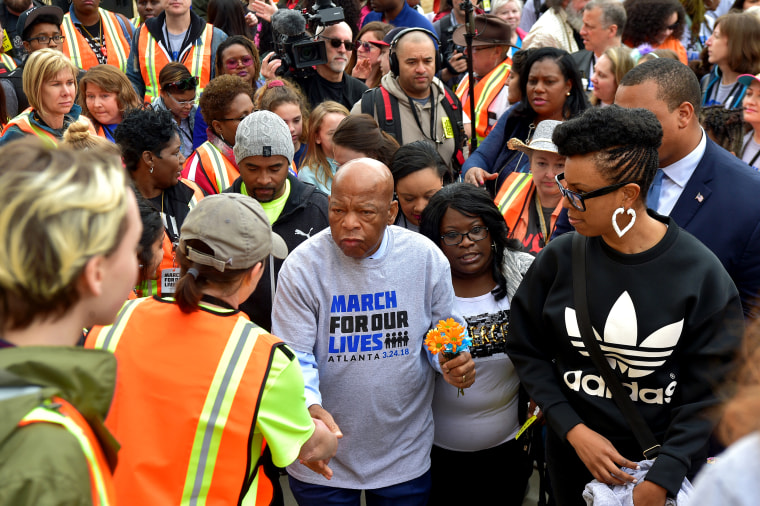
Outside politics, Lewis was just as committed to the young people in his life. Burke said Lewis not only attended one of his birthday parties, but also spoke to Burke's daughter's middle school class and had her work as an intern in his office.
"He's getting pulled from all directions," Burke said, "but he took time to do those things, and I cherish that about him."
James said, "He was one of those people you didn't have to be around a lot to like and appreciate. When we were told he'd be in the office the next day, there was excitement. There was something to look forward to, because he always made time to spend quality time with everyone."
His mission was accomplished.
"Congressman Lewis allowed my level of fearlessness to grow," O'Neil said. "He was like a bonus dad to me. It was a blessing to work for a living, breathing icon. He taught me so much, including how to love the hell out of people. ...
"He was glad to see the new generation is taking the blueprint he and his cohorts established in the '60s. Black Lives Matter supporters are protesting in 50 states and 23 countries, willing to go to jail and willing to die. They learned that from the civil rights movement. And Congressman Lewis' message was: keep going."
This article was originally published on NBCNews.com.
